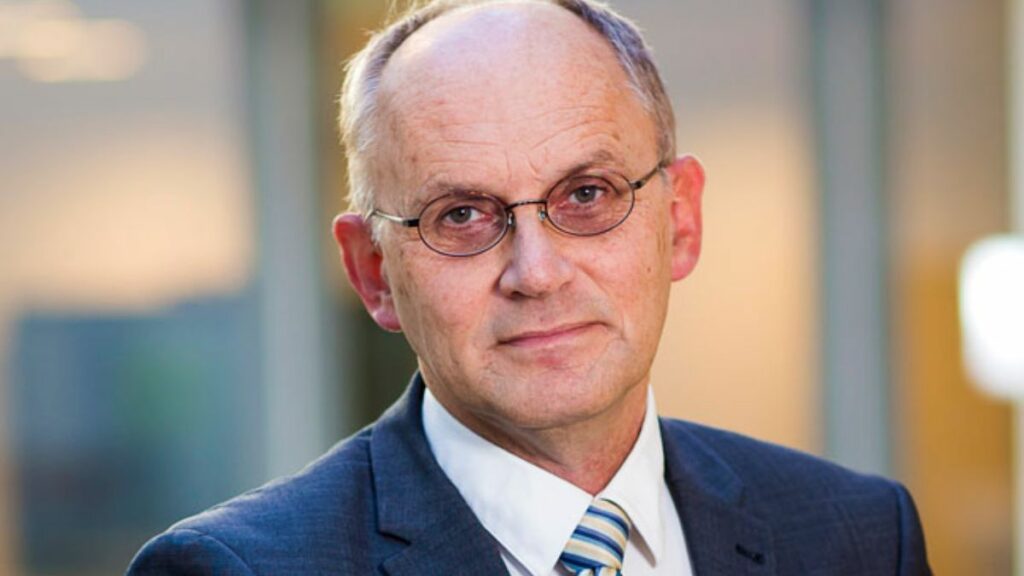Twenty years ago, the Netherlands broke a global taboo. With the approval of the law on the “control of the interruption of life on demand”, it became the first country to legalize euthanasia. The vote in the Parliament was the culmination of a decades-long debate. Many welcomed the new law, hailing it as a liberation. Among the supporters of euthanasia was Theo Boer, a professor of health care ethics. After the adoption of the law, Prof. Boer was a member of the Dutch Control Commission for nine years, which was responsible for ensuring that the law was implemented on time. It was during that time that Prof. Boer began to revise his views on euthanasia. And now he’s talking about it with iFamNews.
Prof. Boer, how did the euthanasia law come about in the Netherlands?
It was a long process, that started with discussions and court cases in the 1970s and 1980s, a makeshift law in 1994, and a definitive law in 2002.
What effects has this law had over the years?
Before the law passed, euthanasia already occurred in thousands of cases a year. The law made this practice to become more transparent, and has given doctors more legal protection. However, it has also led to a new dynamic – in three senses. First, the numbers increased from 2,000 in 2002 to 7,000 in 2020, and continue to rise; second, we saw new pathologies. In the beginning it was mainly terminal diseases (cancer, neurological conditions), but now it also comprises polypathology, dementia, psychiatric conditions, smaller numbers of people with handicaps, and others; and third, people increasingly consider it a right, which it is legally not. This puts high pressure on many doctors.
Was there a “key moment” that made you change your mind?
Not one moment, but in the course of my years on a euthanasia review panel, from 2005-2014, I saw all these developments happen, and realized that euthanasia in many cases no longer was a last resort, but a default option to many. I realized that the law brought some stability, also new instabilities.
Has the number of Dutch citizens opposing euthanasia increased over the years?
No and yes. I think many people have come to see euthanasia as a normal part of a physicians’s task, just like delivering babies or performing surgery. But it is my impression that a considerable and increasing minority has worries: ‘where is this going to end?’
Is “psychological suffering” today a sufficient reason to request euthanasia in the Netherlands?
Yes, in about 80 patients annually. In most of these cases, the procedures take much longer than in physical illnesses. The problem is twofold. First, you seldom know for sure that a patient is hopeless: some patients after many years of psychiatric suffering stand up on their feet again and find new balance and new happiness. Secondly, how can you know that the patient’s wish is free and well-informed? Many psychiatric illnesses include, almost by definition, a patient having a death wish.
What happened to the “completed life” euthanasia bill?
The completed life act is a law proposal that would grant any patient over 74 years old assisted suicide, irrespective of their reasons. It was first discussed in 2011, then announced in 2016, and finally presented to parliament in 2020. In the meantime however, two governmental research projects have strongly advised against this law.
What did these two research projects claim?
The first one, in 2016, argued that it would affect the interest of vulnerable people, and argued that most of these cases would be covered by the existing euthanasia law. The second one, in 2020, argued that the number of people who wish to die is small, and that at least as large a number consists of people from their mid-fifties to their mid-seventies. We are presently in very complicated negotiations in which two liberal and two Christian Democratic parties hope to form a coalition. I hope that in the end, this coalition will leave it to the parliament to decide, since I have good hope that the parliamentary support for this law has sunk well below 50%.
Was there a decrease in cases of euthanasia during the pandemic?
Only initially. This is in part because one big player in the field, the ‘Euthanasia Expert Center’ (formerly known as ‘End of Life Clinic’) ceased to provide euthanasia in mid-March 2020, arguing that euthanasia is not ‘top priority care’. After May, 2020, their help was resumed, and at the end of 2020 we found that the euthanasia numbers were higher than they have ever been before. I do not know the reasons, but loneliness during the lockdown may have contributed to their death wish.
Is it true that in the Netherlands euthanasia has been extended to children under the age of 12?
Formally not. However, instead, the government has issued guidelines that will make children’s euthanasia possible practically, by instructing the public prosecutor not to prosecute doctors who euthanize children under 12, provided that they fulfil certain criteria. I am not sure, however, whether the prosecutor will ‘obey’ these governmental instructions.
In Italy there are those who are promoting a referendum to legalize euthanasia. Would you like to send a message to the Italian parliamentarians?
Don’t expect that euthanasia will help reduce the suicide numbers. In the Netherlands, the suicide numbers have shown a considerable increase in the past decade. Furthermore: keep the medical involvement as low as possible. Do not follow the Dutch example of euthanasia. The fact that assisted suicide is already possible in Italy, in my view leaves enough room for those who tragically insist on having a right to die.
